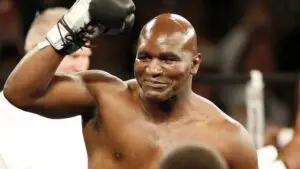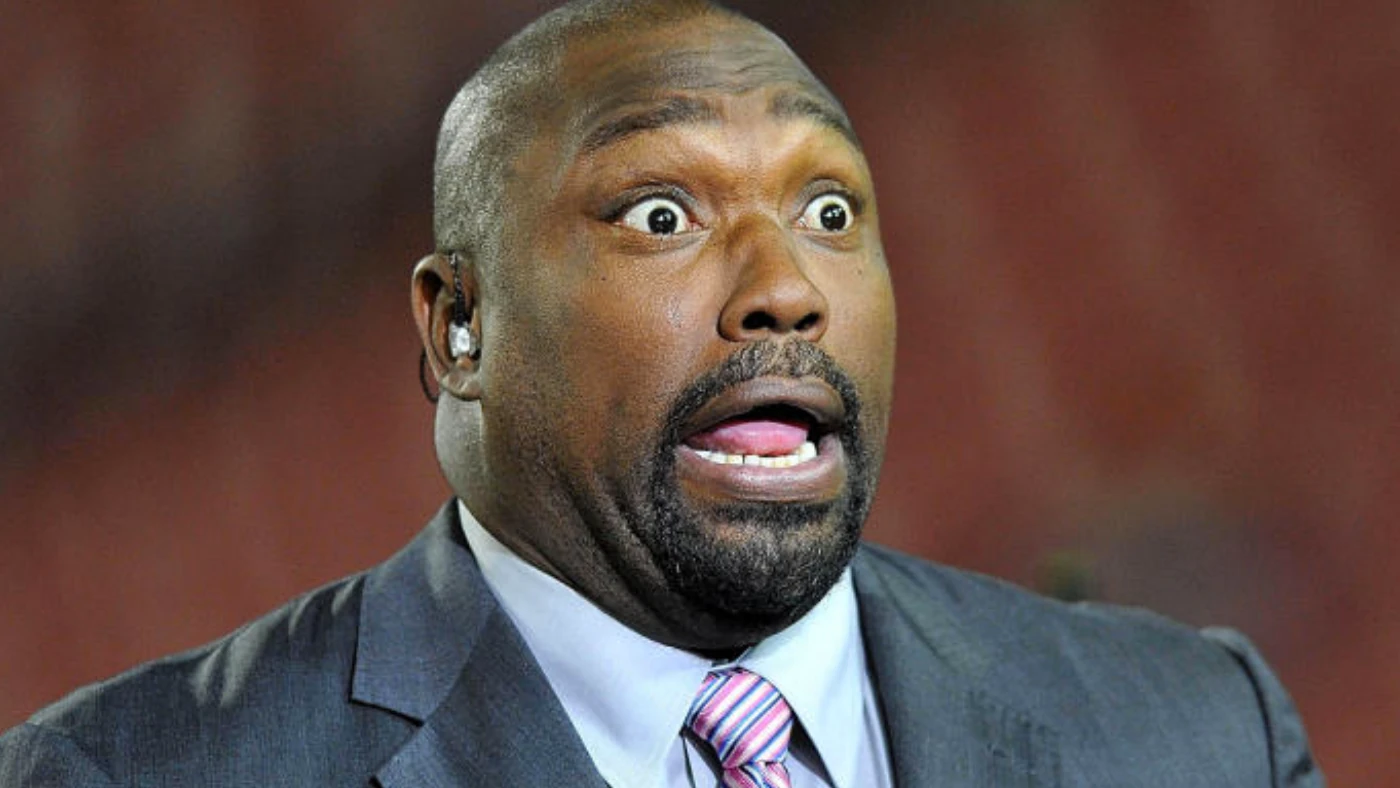I’m not sure what it is but I have a soft spot for (particularly) african-american athletes and their inability to manage money well.
Maybe it’s because I was surrounded by them in college and I understand them differently than others (i.e. how they grew up and what they came from).

Maybe it’s because it pains me to see people mismanage money in general, and it hurts even more when the media makes a schadenfreude-laden spectacle out of high-profile cases.
Or maybe it’s because I just don’t like to see people get ridiculed in the public spotlight. Let’s face it, outside of their individual fandoms, most Americans aren’t exactly cheering for public figures to succeed.
Most people would rather see them fall flat on their face. Doubly so when they are Black.
Jealousy is clearly a significant factor at play.
We believe that these people are worshiped (which they are), we believe they live “beautiful,” stress-free lives, and we think they’re so rich that they don’t have any worries in the world. We believe they spend all their private time partying hard with the boys and knocking up every girl in sight.

My first response is that this thought is extremely ignorant. Most studies show that money and material possessions don’t make you a happier person.
We spend our time consumed with dreaming of their lives: "what if we had that kind of money?"
We personally can’t fathom making the salaries and bonuses that athletes do, so we judge and compare our lives to theirs. "If I made that kind of money I’d never go broke! What a fool!"
While I’m not perfect and I certainly catch myself judging and comparing my life to others, I’ve found that this doesn’t do anybody any good.
The reality of people who receive large sums of money
While we judge and compare our lives to those that are financially blessed, we never really take time to look deeper than the surface-level glitz and glamor.
Quick Facts:
- 70% of lottery winners end up broke.
- 78% of NFL players are bankrupt or “severally financially distressed” 2 years after retiring.
- 60% of NBA players are bankrupt within 5 years of retirement.

These numbers may shock you, but before you rush to call them a “fool,” I’d encourage you to take a step back and think beyond your initial reaction. Understand what is really going on.
7 reasons athletes go broke
1. They were never taught how to manage money (just like the rest of us)
Much like you and I, celebrities and athletes were never taught how to manage money growing up.
They were never taught basic financial principles of budgeting, living on less than they make, saving for their future, or investing properly.
There is a definitive correlation between financial knowledge and financial behavior. If you’ve never been taught how to properly manage money, then the odds are you’re going to end up broke – regardless of who you are or how much you make.
2. They grew up in the inner city and had nothing to speak of in regards to material possessions

This isn’t true for some athletes, but the reality is that many of them grew up dirt poor. A lot of them come from broken homes and inner cities – places where the only way to “get out” is to make it to the big leagues or to study really, really hard and overcome all of the hurdles involved with growing up like that.
I would venture to say that if you were given large sums of money and grew up with nothing, then you’d be inclined to do exactly what they do when they “make it big:” spend everything on bling and buy a bunch of nice stuff! Why shouldn’t they? They worked their whole lives to get to that point and they earned it.
3. They have family they want to help
If you talk to a professional athlete, typically their first desire is to help take care of their family and their close friends.
Also, as I mentioned a second ago, a lot of them came from nothing so they desire to get their family a better place to live and shower them with the luxuries that any parent deserves.
Is that so different than you and I?
4. They keep old friends around and travel in entourages
The saying goes something like "your salary with be the average of your 10 closest friends."

The reality is that you’re going to be like the people you associate yourself with. Dave Ramsey likes to say that “rich people do rich people stuff, and poor people do poor people stuff.”
The same is true if you look at it a different way: if you’re surrounded by people that hate society and think negatively then you’re going to end up the same way!
The problem with many of these athletes is that they have life-long thug friends that they never stop associating with. When those friends don’t “make it,” they hop on the back of the “bread-winner” and enjoy the “high life” right alongside them.
These are generally the same friends that grew up in poverty and lived a life that the majority of us are sheltered from – ways of life that I could never comprehend. More often then not this means that these friends eventually lead the person back into trouble – financially and legally.
Have you ever seen the show Entourage? Exactly…
5. They have to rely on others for financial advice

The reality of the professional athlete is that their life is CONSUMED with their job. They don’t just play the games we see on TV (or in person), they practice, they work out, they have meetings, and they study film on top of that.
This reality, along with the fact that most athletes aren’t financially savvy (see point #1), means that they’re forced to rely on others to provide their financial guidance.
An athlete’s agent may recommend an accountant or advisor. Sometimes there is a family member that “helps” them, and others rely on recommendations from teammates. Who better to trust than the person you’re with every day?
Considering athletes are high-profiled (and earn a lot of money), they’re targets of sophisticated scams every single day. Many of the public debacles we see is because a group of players use the same investment manager (one refers another, who refers another) and who turns out to be a fraud.
6. They never reduce their lifestyle

Even after their playing days and high-earning years are behind them, many athletes continue to live the glitz and glamor lifestyle they had been accustomed to.
The reality for most Americans is that we’ve yet to reach retirement, so many of us don’t know what these feels like. However, I can promise you that you’re going to run into this issue as well.
Most of us don’t save enough money each month to ensure us of a similar lifestyle once we reach our twilight years. The old-school American Dream was that we’d reach retirement and ENJOY the finer things in life: traveling, not working, spending unlimited time with friends and family, etc.
However, that lifestyle comes with a cost. When you’re faced with reality and have to cut back, it’s going to be difficult and you will find yourself running out of money too quickly in retirement.
In fact, 61% of Boomers fear outliving their assets more than they fear dying.
Just like the majority of these points, athletes are no different than us in this regard. They simply “retire” earlier and have longer to live on the nest egg they’ve built up.

Adjusting lifestyle is far-and-away the hardest thing to do. If you’ve been accustomed to living on $500,000/year then that means you need a nest egg of $12,500,000 earning 4% to ensure you live off of the interest and not dip into the principle (meaning that you probably wouldn’t outlive your money).
7. They get married…and then divorced...and have lots of children by different mothers
My guess is that many of these guys/girls don’t marry for true love; of course they think they’re getting married for the right reasons but how can you really know when everybody is constantly trying to impress you?
With all of the groupies and people that throw themselves at athletes and movie stars, it would be extremely difficult to really know if somebody loved you or if they were putting on a show so they could get to your money.
Even if an athlete has the future spouse sign a prenuptial agreement, they are typically still on the hook for alimony and child support. These payments can be tens of thousands of dollars a month and is something that’s EXTREMELY difficult to maintain once the player retires.

If there isn’t a prenup, then half of the professional athlete’s wealth gets shipped over to the “better half” along with the ridiculous alimony and child support payments.
Don’t be too quick to judge
If you've made it this far, you now know why you shouldn't be shocked when they go broke.
You now know why you shouldn’t be judgmental and compare your life to theirs. What’s the point? What good does it do when you bask in their failure?
How are they any different from you and me? We all struggle with money. Just because a person has a high income doesn’t lessen this reality…it just makes it impact them even more.
 Nothing Ever Happens Shirt $21.68 |
 |
 Nothing Ever Happens Shirt $21.68 |


I like where this is coming from but it's like 3000 words and still does nothing to deal with the white supremacist undercurrent fueling these bankruptcy spectacles. You know what they say about silence.